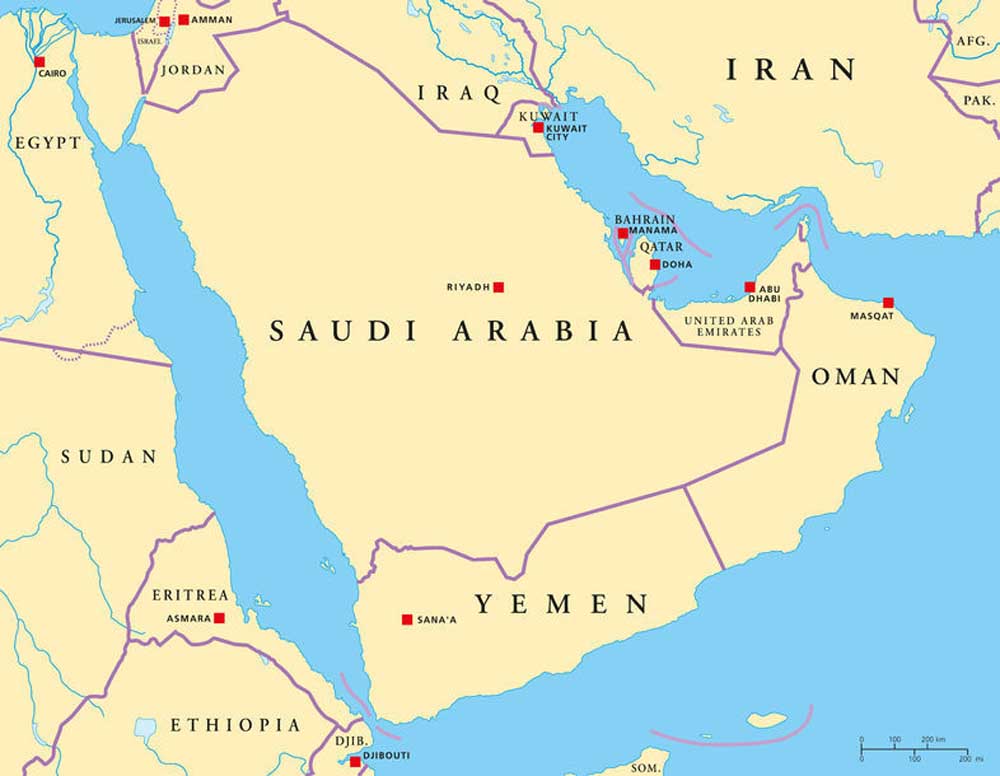Pro: Congress must act quickly to end America’s atrocities in Yemen
Published 12:00 am Monday, March 12, 2018

- (123rf)
Editor’s note: The writer is addressing the question, “Should the Senate use the War Powers Act to remove U.S. troops from Yemen?”
WASHINGTON — Your taxpayer dollars and military forces are at work, on the other side of the world, in Yemen — one of the world’s poorest countries.
Every 10 minutes another child dies of preventable disease. It’s not a natural disaster but a human-made one: Saudi Arabia has cut off most supplies of food, fuel and medicine from Yemeni ports.
This has put more than 8 million people on the brink of starvation. The destruction of infrastructure has also created the worst epidemic in history of cholera, a water-borne disease that has sickened more than a million people there and killed thousands. Saudi and Emirati planes have also killed more than 10,000 people, mostly civilians, with bombs.
What does the U.S. government have to do with this suffering, which has created the worst humanitarian crisis in the world today?
Unfortunately, a lot. The U.S. military is directly involved, providing mid-air refueling to Saudi and UAE warplanes during their bombing runs, as well as targeting assistance for their bombs, and other logistical aid.
In November the New York Times Editorial Board accused the U.S. government of complicity in “war crimes,” in an editorial entitled “Saudis try to starve Yemen into submission.” Which is exactly what they are trying to do.
Last week a bipartisan group of senators, led by Bernie Sanders, I-Vt.; Mike Lee, R-Utah; and Chris Murphy, D-Conn., introduced a bill to end U.S. military participation in this war, which was never authorized by Congress.
The bill is historic in that it invokes the 1973 War Powers Resolution, which was legislated toward the end of a long struggle to end U.S. military involvement in Vietnam.
The law requires that Congress must have a debate and vote on ending involvement of U.S. military forces in unauthorized hostilities if a member of Congress requests it.
In November, this law was used to force a vote in the House of Representatives, in which the House voted 366 to 30 to confirm that the U.S. military was indeed involved in mid-air refueling and bomb targeting assistance, and that this U.S. military involvement was not authorized by Congress.
But the Senate vote will be much more powerful, in that the Senate bill, if passed into law, would actually require the withdrawal of U.S. forces from participating in Saudi Arabia’s war.
It has a good chance of passing, too, since the last arms sale to Saudi Arabia — in June — was approved by a vote of just 53-47. And in December, Trump called for Saudi Arabia to “completely allow food, fuel, water and medicine to reach the Yemeni people who desperately need it.”
In his speech introducing the bill, Sanders said: “The Founding Fathers gave the power to declare war to Congress, the branch most accountable to the people. For far too long, Congress under Democratic and Republican administrations has abdicated its constitutional role in authorizing war.”
Since Article I, Section 8 of the Constitution clearly allocates to Congress the power to decide whether the U.S. goes to war, numerous legal scholars have wholeheartedly endorsed this effort.
Many organizations from across the political spectrum have also joined in, as well as celebrities and other public figures.
— Mark Weisbrot is co-director of the Center for Economic and Policy Research, a think tank in the nation’s capital.








